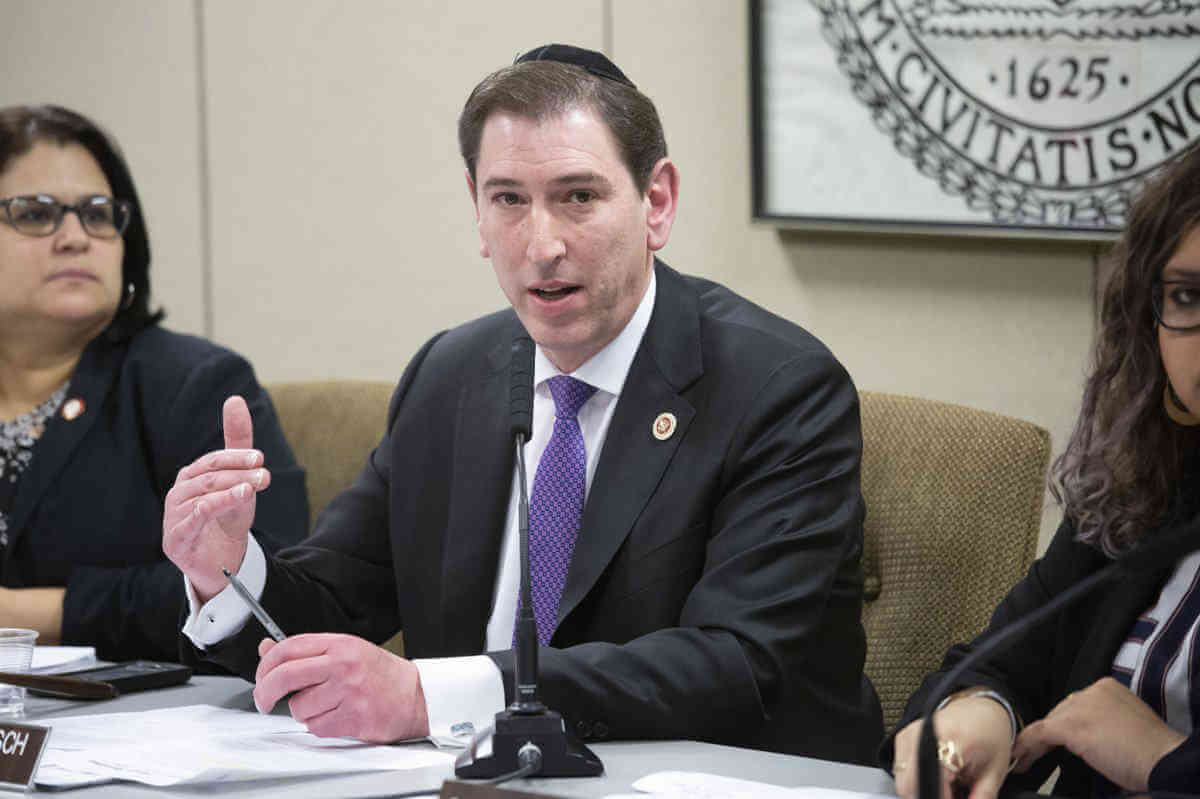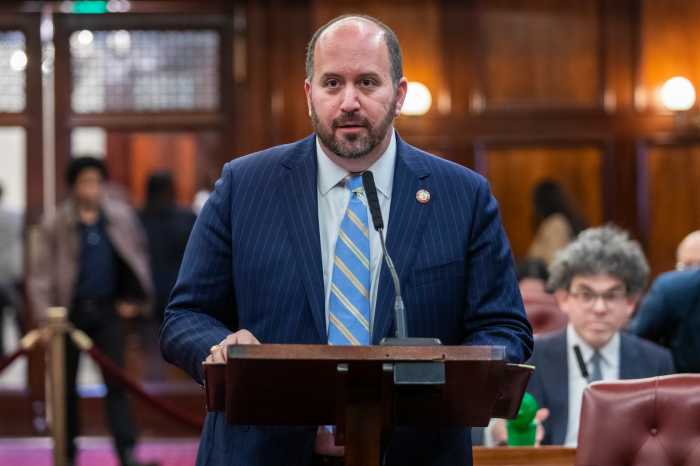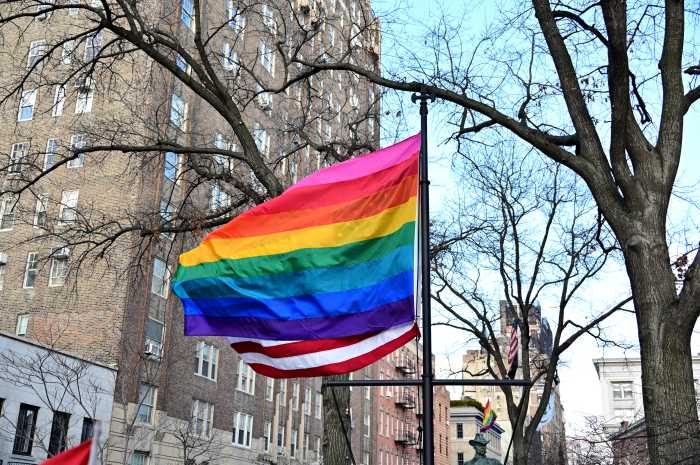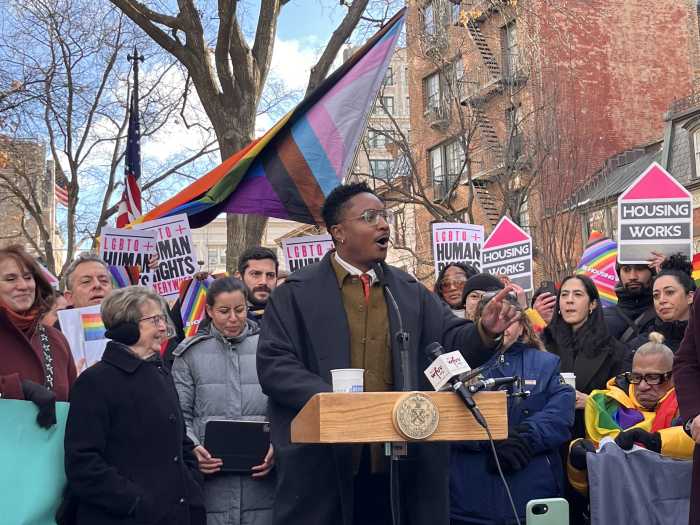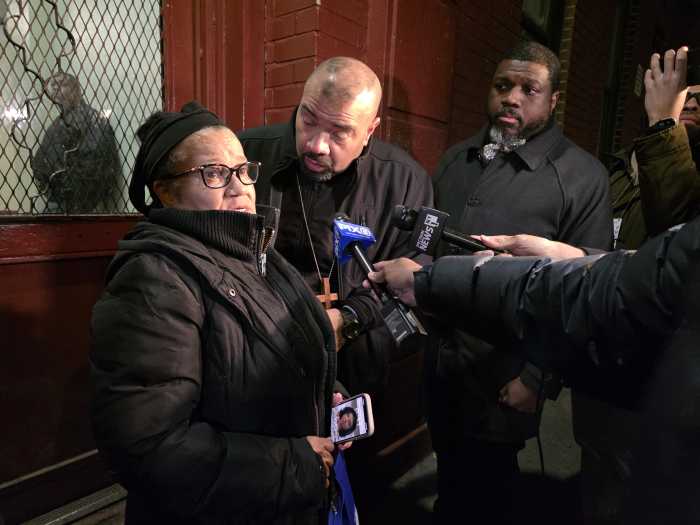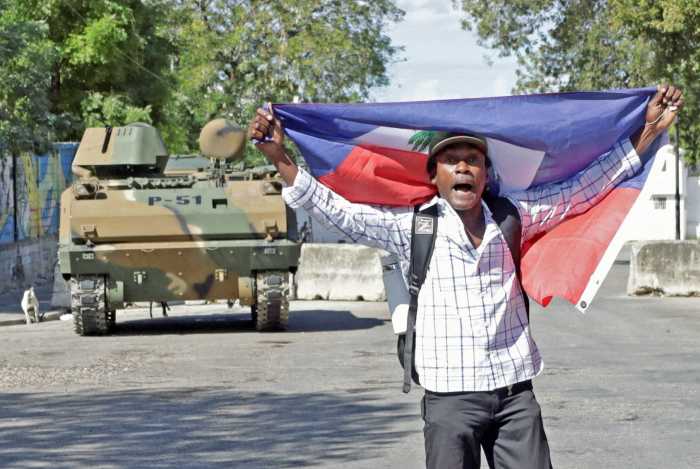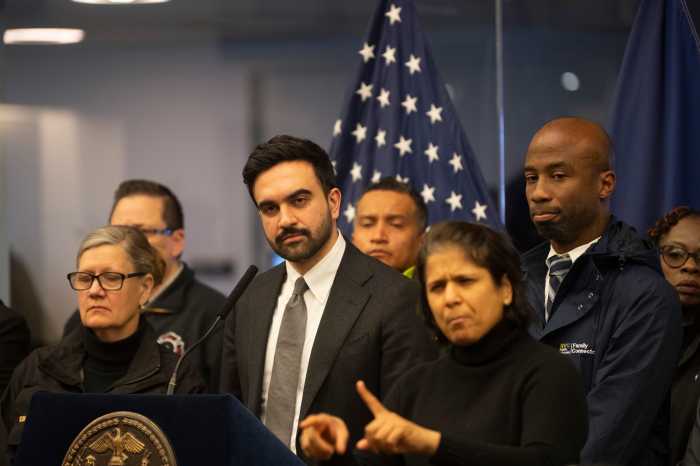A February 26 joint hearing between the City Council’s Veterans Committee and the Committee on Mental Health, Disabilities, and Addiction initially deviated from its main focus of suicide — and that was the final straw for Kristen L. Rouse, the out lesbian founding director of the NYC Veterans Alliance.
Rouse, a US Army veteran, said in an interview with Gay City News that her team has spent the last year trying unsuccessfully to work with Veterans Committee Chair Chaim Deutsch, a Brooklyn councilmember, in an effort to improve the lives of local veterans and their families. She has now concluded he is neglecting his duties as chair by failing to meet with the city Department of Veterans Services (DVS), ignoring LGBTQ veterans issues, and making inappropriate homophobic comments in conversations with her.
The NYC Veterans Alliance is preparing to summarize its concerns in a letter to out gay Council Speaker Corey Johnson.
Among the earliest rumblings of trouble came last June 19 when Deutsch made comments that Rouse found disturbing in a private conversation between the two following a City Council hearing. Outside Council offices at 250 Broadway in Lower Manhattan, Rouse recalled, Deutsch, unprompted, brought up his opposition to same-sex marriage before mentioning that he nevertheless still has friends, like Speaker Johnson, who are gay.
“In two of the conversations I’ve had with him, he has diverted into puzzling discussions about how he interacts with gay people on the Council and that his district believes in traditional marriage,” Rouse said of Deutsch, who represents Brighton Beach, Sheepshead Bay, Trump Village, Manhattan Beach, Luna Park, Brightwater Towers, and Midwood.
A spokesperson for Deutsch pushed back against that claim, telling Gay City News he “does not recall having this conversation, nor would he make a blanket statement like that.”
The alleged comments wouldn’t mark the first time Deutsch has explained his anti-LGBTQ views by pointing to attitudes in his district, which, like every other neighborhood in the city, has plenty of LGBTQ residents. In 2013, Deutsch attacked a political opponent, Theresa Scavo, for having the support of the National Organization for Women, saying, “I don’t know how you could represent this community when they have an agenda with gays and lesbians.”
Deutsch has created such an uncomfortable atmosphere in Rouse’s view that she felt forced to hire a new staff member dedicated to communicating with him in her place.
Five months after the June conversation, Deutsch once again signaled his lack of commitment to issues affecting LGBTQ veterans. He skipped out on a November hearing on legislation that would require DVS to assist veterans tossed out of the service due to the military’s former Don’t Ask, Don’t Tell policy in upgrading their discharge status. Deutsch’s absence was notable given his role as chair of the committee, especially since he had originally been a sponsor of the initiative to help veterans upgrade their discharges as appropriate until out gay Queens Councilmember Daniel Dromm succeeded in getting it amended to include the provisions regarding gay and lesbian veterans.
Deutsch also appears not to have made much of an effort to open lines of communication with relevant city agencies. Rouse said employees within DVS, which is led by out lesbian Commissioner Loree Sutton, told her that the committee chair refuses to meet with them outside of hearings. A DVS spokesperson reviewed calendar entries and confirmed to Gay City News that Deutsch’s interactions with the agency have primarily been limited to hearings.
Deutsch rejected that claim, saying he “meets with them regularly.”
“If he’s not meeting with [Sutton] and having constructive conversations, I’m not encouraged,” Rouse said. “I’m actually very concerned.”
And the NYC Veterans Alliance is specifically disturbed that Deutsch, a conservative Democrat who has among the most consistently anti-gay voting records on the City Council, steers clear of addressing the plight of LGBTQ veterans while giving attention to other demographics.
“He cannot stand for all veterans except for LGBTQ veterans,” Rouse said. “We need to have positive messaging from him that every one of us matters and that he will not stand for hate against Jewish veterans any more than he would stand for hate against LGBTQ veterans.”
In response, Deutsch said he works with LGBTQ veterans “every day” and “has specifically LGBTQ veterans advocacy organizations included in veterans roundtables, meetings, events, and our veterans resource guide.” His office did not name any of those groups.
Rouse acknowledged that Deutsch has remained largely respectful and that she appreciates the attention he has placed on fighting anti-Semitism at a time when it has surged in New York City and elsewhere. She specifically praised him for his part in organizing a rally against “bias, racism, and anti-Semitism” on March 3. Though some participants at the rally voiced their support for LGBTQ rights, Deutsch did not mention the community in his own flyers and communications about the event.
“Just as anti-Semitic hate kills, anti-LGBTQ hate kills, too,” Rouse said. “It leaves many of us wishing that he also recognized the importance of standing against hate of anybody, including LGBTQ individuals.”
Other LGBTQ veterans share Rouse’s concerns. Isra Pananon, an out lesbian who completed a tour in the Middle East and is currently in the US Army Reserve, said Deutsch’s disservice to LGBTQ veterans is especially problematic because of the pressing issues facing them, such as suicide risk.
“I can’t quite understand why he is unable to vocally support LGBTQ veterans,” said Pananon, who is joining the board of NYC Veterans Alliance. “The failure to back up and support the LGBTQ community is to me a leadership issue.”
During the February 26 hearing about suicide, Deutsch didn’t turn to that topic until well into the meeting. Instead, he initially focused attention on ThriveNYC, the city’s four-year, $850 million mental health initiative, of which only a small fraction is dedicated to DVS. Deutsch questioned Sutton about why his office fails to receive quick responses from ThriveNYC when it is operating with such a massive budget.
Sutton responded that she is happy to finally see funds directed to mental health needs after spending years as a psychiatrist watching people struggling to overcome barriers to care.
“In New York City, $850 million is a small price to pay for 8.6 million people,” she said.
Sutton also emphasized the importance of allocating resources toward the most marginalized veterans, including women and LGBTQ people. She went on to highlight the city and state’s recent enactment of laws banning so-called gay conversion therapy. When that issue was before the Council in 2017, Deutsch voted against it.
“This is a time to double down on our mental health,” Sutton said.
Out gay Queens Councilmember Jimmy Van Bramer, a member of the Mental Health, Disabilities, and Addiction Committee whose husband was discharged from the military for being gay, asked Sutton what DVS is doing to help LGBTQ veterans.
She responded that the agency works with advocacy groups such as SAGE, which works with LGBTQ elders, and added that DVS is currently putting efforts into establishing “bonds of trust that will allow us to connect our LGBTQ brothers and sisters with quality legal services.”
“For so many of them — veterans in the ‘80s who kept this from their family members but lived in shame, suffered in silence — change in policy and culture has allowed them to proclaim who they are, and our general counsel is working with veterans legal services in the city and seeing how to make things better,” Sutton said.
Rouse came away from the hearing discouraged about what she saw as Deutsch’s dismissive and harsh attitude toward Sutton in his effort to “grandstand about ThriveNYC.”
“He never acknowledged the commissioner’s expertise, especially as a psychiatrist,” Rouse said. “Especially on the topic of veterans mental health and suicide. He was never responsive to her insights on that. He kept digging in on things she has nothing to do with.”
Rouse said she followed up on the hearing with a Monday phone call to Deutsch during which she expressed her concern that he did not adequately discuss the issue of suicide during that hearing. The chat largely went nowhere.
“I feel like the end of my conversation with him validated the start of my conversation,” she said.
During the call, Rouse pressed Deutsch on his anti-LGBTQ actions, including his vote against dissolving Councilmember Ruben Diaz’s committee after his recent homophobic tirade — something the Council overwhelming approved. Deutsch responded that he had his reasons, but would not elaborate out of fear that she would “twist” his words against him. According to Rouse, the councilmember accused her of mischaracterizing his words last year when she said in a letter that he is “a city councilman who has been explicit with me that he cannot support the full equality of lesbian, gay, bi, transgender, or queer veterans or service members.”
“He’s not showing leadership when it comes to issues of LGBT veterans face,” Rouse concluded. “It’s not an oversight, he’s just not leading on that.”

